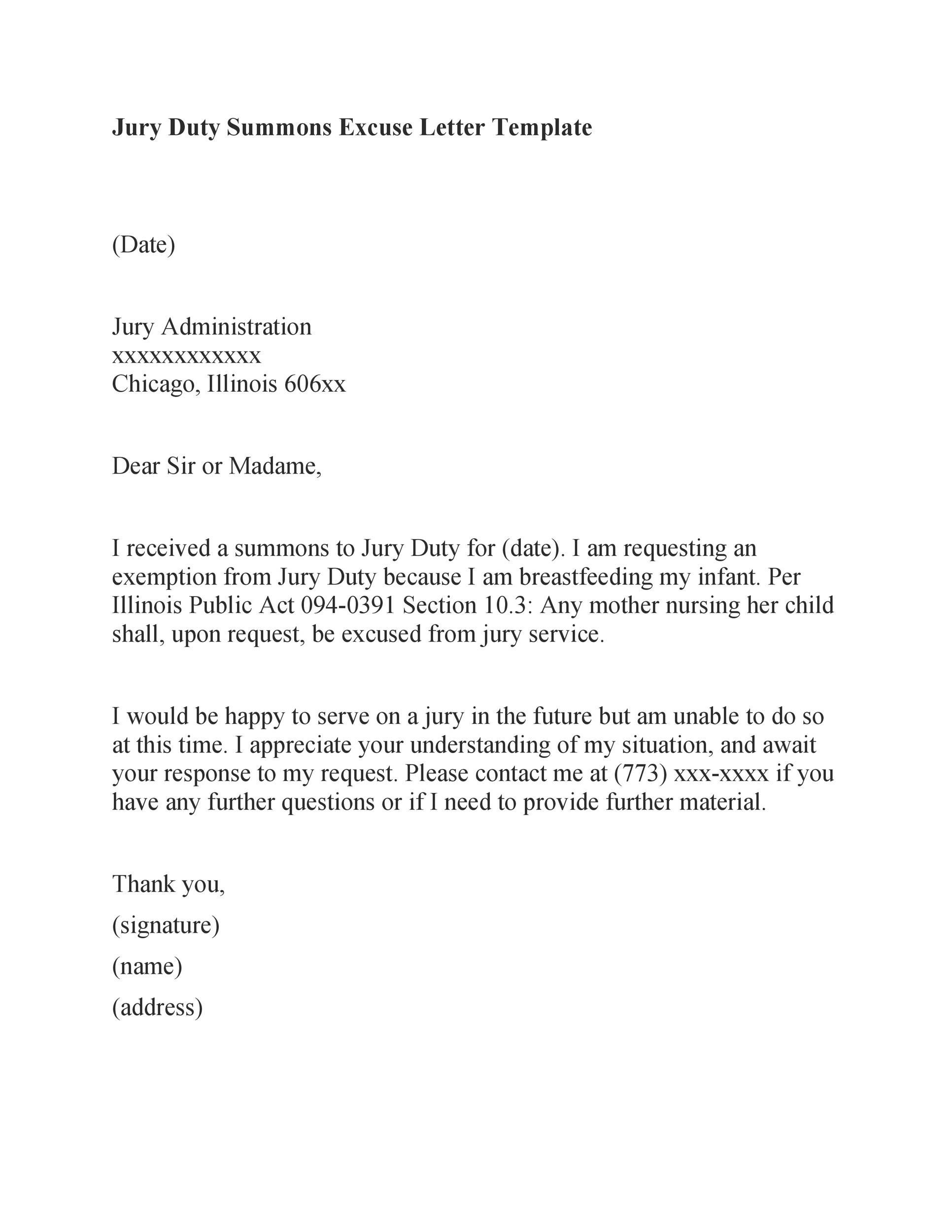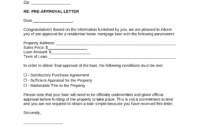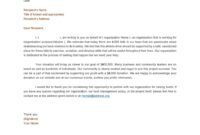Receiving a jury summons in the mail can often bring a mix of emotions. For many, it’s a sense of civic duty, a chance to participate directly in our justice system. For others, however, it can stir up a wave of anxiety, bringing concerns about work, family responsibilities, or personal health. It’s completely understandable to feel overwhelmed when faced with the prospect of rearranging your life for an unspecified period.
The good news is that courts recognize that not everyone can serve at every given time, and there are legitimate reasons why you might need to be excused or have your service postponed. If you find yourself in such a situation, knowing how to communicate your circumstances effectively is crucial. That’s where a clear and concise jury duty excuse letter template comes in handy, providing a structured way to present your case to the court.
Understanding the Jury Summons and When You Can Be Excused
First things first, it’s important to understand that a jury summons is not a request, but a legal order to appear. Ignoring it isn’t an option and can lead to serious legal consequences. However, the courts are also pragmatic and understand that life happens. There are established guidelines and criteria for who can be excused from service, either temporarily or permanently, often based on specific hardships or statutory exemptions. It’s about finding a balance between civic responsibility and personal capacity.
Before you even think about writing a letter, take a moment to carefully read through your summons packet. It often contains valuable information about the court’s specific procedures, deadlines, and a preliminary list of grounds for disqualification or excuse. Some courts even provide a form to fill out directly, which might be simpler than drafting a letter from scratch. Understanding these initial instructions will save you a lot of time and ensure you follow the correct protocol.
Common Grounds for Exemption or Excuse
While specific reasons can vary slightly by jurisdiction, several common grounds are generally accepted. These aren’t just minor inconveniences, but situations that genuinely prevent you from fulfilling your duty or would cause undue hardship. Being honest and providing supporting documentation is key to a successful excuse request. Let’s look at some of the most frequent:

- Medical Reasons: If you have a serious illness, disability, or are undergoing treatment that would make it difficult or impossible to serve, or if serving would jeopardize your health.
- Caregiver Responsibilities: If you are the primary caregiver for a child, elderly person, or an incapacitated individual and no other care is available.
- Financial Hardship: If jury service would result in extreme financial loss that you cannot absorb, especially for self-employed individuals or those in precarious financial situations.
- Prior Jury Service: In many jurisdictions, if you have served on a jury within a certain timeframe (e.g., the last one or two years), you may be exempt.
- Age: Some jurisdictions offer exemptions for individuals over a certain age (e.g., 70 or 75), though often this is an option rather than a mandatory exemption.
- Student Status: Some courts offer deferrals or exemptions for full-time students, especially during critical academic periods.
It’s vital to remember that simply being busy with work or having a vacation planned usually isn’t enough to get an automatic excuse. The court is looking for significant, unavoidable conflicts or hardships. Providing clear, concise details and, where possible, official documentation (like a doctor’s note or employer letter) will significantly strengthen your request and show the court you’re taking the matter seriously and have a legitimate reason for seeking an exemption or postponement.
Crafting Your Jury Duty Excuse Letter Template: Key Elements to Include
Once you’ve identified a valid reason for excusal, the next step is to communicate it clearly and professionally to the court. A well-structured letter not only makes your case compelling but also demonstrates your respect for the legal process, even as you seek an exemption. Think of this as your formal communication with the court, so clarity and completeness are paramount. You want to make it easy for the court clerk or judge to understand your situation and make a decision.
Your jury duty excuse letter template should be polite, to the point, and factual. Avoid emotional language or making demands. Instead, focus on presenting your circumstances objectively and explaining how they prevent you from serving effectively. Remember, the goal is to provide enough information for an informed decision without oversharing unnecessary details. If you’re requesting a postponement instead of a full excuse, be prepared to suggest alternative dates if the court allows.
Here are the essential components you should include in your letter:
- Your Information: Your full name, address, phone number, and email. This should be at the top of the letter.
- Court Information: The name of the court, its address, and the name of the Jury Clerk or Clerk of Courts if known.
- Date of Summons and Juror ID/Summons Number: Clearly state the date you received the summons and, most importantly, include your unique juror identification number or summons number. This is critical for the court to quickly identify your record.
- Clear Statement of Request: Directly state that you are requesting to be excused or to have your service postponed, and clearly specify the reason.
- Detailed Explanation of Your Reason: This is where you elaborate on your specific hardship or exemption. Be concise but provide enough detail to support your claim. For medical reasons, include the nature of the condition and how it affects your ability to serve. For caregiver responsibilities, explain who you care for and why you are indispensable.
- Supporting Documentation (if applicable): Mention any documents you are enclosing, such as a doctor’s note, an employer’s letter, travel documents, or an affidavit. Make sure to attach copies, not originals, and keep originals for your records.
- Professional Closing: A polite closing like “Sincerely” or “Respectfully,” followed by your typed name and signature.
Proofread your letter carefully for any grammatical errors or typos. A professional appearance reinforces the legitimacy of your request. Once drafted, make a copy for your personal records before sending it via certified mail with a return receipt requested. This provides proof that your letter was sent and received, which can be invaluable if there are any questions later on. Don’t just rely on standard mail; certified mail offers that extra layer of security and peace of mind when dealing with legal matters.
Navigating the requirements of jury service can seem daunting, but by understanding the process and preparing a thorough, well-reasoned letter, you significantly increase your chances of a favorable outcome. Remember, the court’s goal is to ensure fair trials, and that includes having jurors who can fully participate without undue personal hardship. Your communication should reflect this understanding, showing that you respect the system while clearly presenting your inability to serve at this particular time.
Whether your request is granted or denied, responding promptly and appropriately to your summons is a testament to your civic responsibility. By utilizing a clear jury duty excuse letter template and providing all necessary information, you’re not just making a request; you’re engaging thoughtfully with the legal system. This diligent approach helps both you and the court manage the vital process of jury selection effectively.



